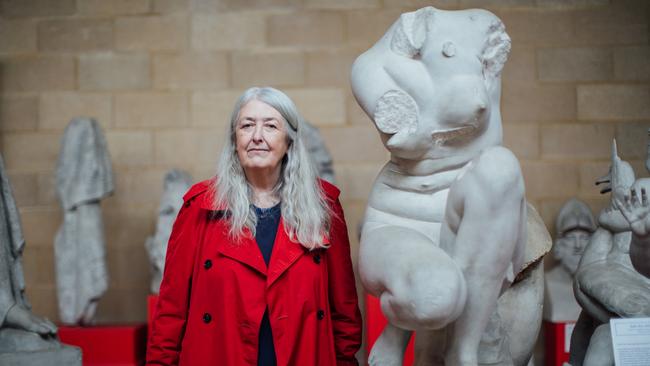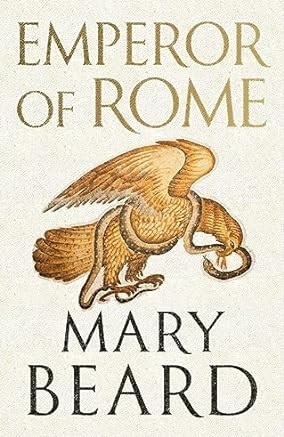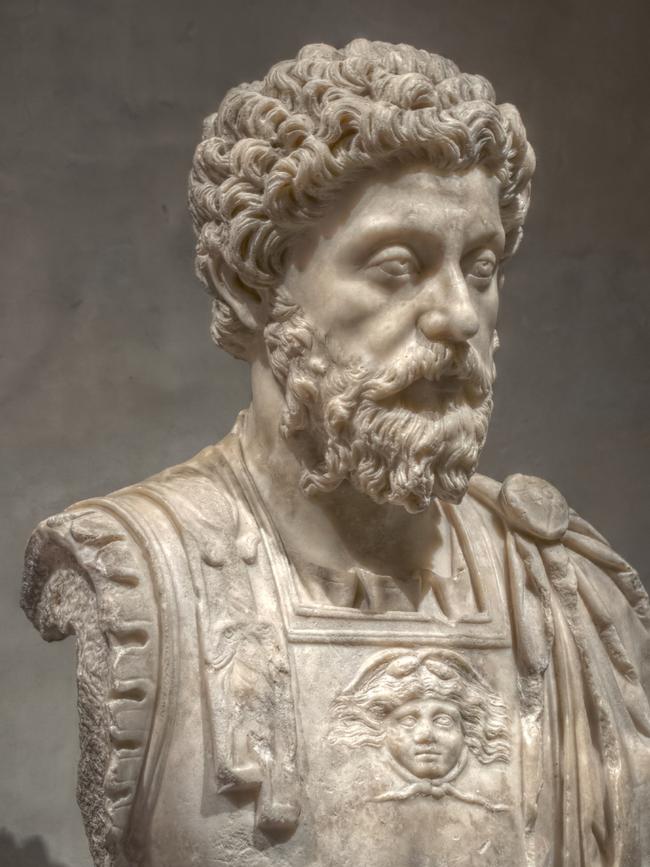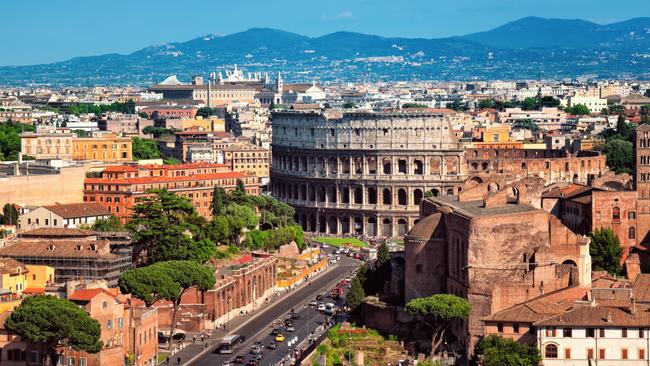A conversation with Mary Beard, our unrivalled modern guide to Ancient Rome
Ancient Rome is a compelling subject – whether it is reading books, watching documentaries, listening to podcasts or travelling to ruins. If you’re a fan, you’ll love this chat with the world’s leading classicist.

Mary Beard is the world’s leading classicist, combining scholarly rigour with popular accessibility, and is unrivalled as a modern guide to ancient Rome. Her books include Twelve Caesars (2017), SPQR (2015) and Pompeii (2008). Her documentaries, lectures and podcasts have won global acclaim, and she brings history to the masses via social and digital media.
Her latest book, Emperor of Rome, is a compelling insight into what it was like to rule the greatest empire, how emperors ascended to power and met a typically grisly end, where they lived, what they ate and how they travelled, managed administrative burdens, dealt with the Senate, and kept citizens contented and entertained.
Beard, 68, retired from teaching at the University of Cambridge last year. She is the classics editor of the Times Literary Supplement, a trustee of the British Museum and was made a Dame Commander of the British Empire in 2018. It was pure joy to talk to her via Zoom.

TROY BRAMSTON:What is it that makes ancient Rome such a compelling subject – whether it is reading books, watching documentaries, listening to podcasts or travelling to ruins?
MARY BEARD: It’s partly that it never goes away and it’s still there. You don’t see Roman ruins in Australia, but anybody who sets foot in Rome sees traces of that civilisation. Western cultures, but also more widely, have used the Romans to talk about themselves. We still see them as larger-than-life people. Look at that silly TikTok trend asking men how often they thought about the Roman Empire. Some guys said seven times a day. I suspect it’s also a safe space for enjoying a bit of macho fantasy.
Why did you focus on emperors in your new book?
When I wrote SPQR, essentially a narrative history of Rome, its drive was chronological. By the time you get to the reign of Augustus (the first emporer, 27BC-AD14), nothing much changes for another 200 years. Their empire doesn’t grow, apart from Britain, and the internal workings of Rome remain static.
I’m a historian who likes to look at ordinary people. In some ways, you see the ordinary people as clearly as you ever can through his eyes because the emperor is the person to whom people bring their problems. So the book, in some ways, is about the guy at the top, but through him you see ordinary people and you see how they think about him and what he does for them.
Robert Graves’ I, Claudius gave a distorted view of the Roman Empire. Are there other myths and legends that annoy you?
It does give a distorted picture but then, in a way, every picture is distorted. I don’t want to chuck out Robert Graves nor do I want to chuck out all the people who write biographies of Roman emperors. The famous BBC television series I, Claudius in the 1970s has branded my imagination with their vision and Graves’ vision of these people. Graves is giving a very partial reading of Suetonius’ The Lives of the Caesars, and it has some of the approaches that I don’t like, but it remains part of our imagination. People do tend to imagine, understandably, that the Romans acquired their empire under the emperors. That is wrong. Trajan, in particular, didn’t acquire anything very much but a small bit of Dacia. The empire as a geographical unit is established by the end of the reign of Augustus.
If you see William Shakespeare’s play Julius Caesar you would think everybody wears togas all the time, but you make the point that it is like wearing a tuxedo.
That’s exactly right. Shakespeare, bless him, has got a great deal to answer for. In the assassination of Caesar, he makes Brutus and Cassius look like honourable guys. Brutus is the nastiest piece of work. Shakespeare has imprinted in our minds the vision of what an assassination is like: freedom fighters who kill the tyrant in the name of liberty. If you look at the history of Roman assassination, most emperors did not get killed in public by principled political opponents but got poisoned at dinner by their family or smothered to death by their personal trainer in the palace.
You distil Augustus’ What I Did into a how-to guide: be a conqueror, be a benefactor and sponsor new buildings. You also refer to Juvenal’s “bread and circuses” satire. Are these the essential instructions for being an emperor?
Augustus, in some ways, intended them to be. He puts it up at the end of his life and then it’s erected outside his mausoleum. It’s a short autobiography. It’s also a job description for the future. That is the basic template of what emperors claim to do. They are not really conquering very much but they’re making a song and dance about being conquerors. All those statues of emperors in military kit with those little skirts are a substitute for being a soldier rather than as a reflection of the military role.
Emperors projected authority through imagery, buildings, games, battles and even “power dining”. But there was a less glamorous aspect – paperwork. How did emperors balance these roles?
It’s very hard to see which emperors were good and bad because their reputation is so formed by those who come after them. But you can see they’re balancing on a tightrope between being the office boy and commanding by being public, by being generous and a ceremonial personality. There are examples of some of them getting it slightly wrong. Both Julius Caesar and Marcus Aurelius are criticised because they take their paperwork to the races.
Let’s talk about Nero. There is a popular notion that Nero and also Caligula were bad and brutal emperors. Have they been maligned in history?
In some ways, yes. There is a basic rule in Roman historiography that if you are assassinated, you get a bad reputation. There are two possibilities here: you were assassinated because you were dreadful or after you were assassinated it was the priority of the next man on the throne to make clear that your assassination was deserved.
The truth usually lies a little bit in between.
These things are eternal, aren’t they? This happened about 2000 years ago but whether it is a prime minister being able perform the necessary administrative functions or being replaced by a rival who diminishes their legacy, these things echo in history.
Yeah. You can see the patterns of politics. Looking at the Romans helps us see that kind of feature within our own politics.
Some of the biggest stereotypes in Roman history are being used and exploited to talk about modern politicians. People said Nero was an actor and so just how much are politicians today just playing an act?
Many people come to the Roman emperors through Marcus Aurelius and his Meditations. But you are not such a fan. Tell me why, because there will be people reading The Weekend Australian who will be very upset with you about this.
Yes, I know. I think Marcus Aurelius is an extremely interesting figure. But I’m no admirer of the Meditations. I thought there were some clever observations about the nature of palace life. I thought mostly, however, they are perfectly decent but rather second-rank Stoic platitudes. Saying things like – and this isn’t a direct quote – “When you get up in the morning, make sure you’ve always got a plan for the day.”

I was at a bookshop a few days ago and I went to the ancient history section and there were probably five or six editionsof Meditations that you could buy.
I’m very pleased he’s still a bestseller. It’s two fingers up to the modern world.
But I am going to go and buy five or six of these and do a service to humanity and compare them closely with the original Greek. I suspect they’ve been reinterpreted and retranslated so that they’ve become rather like a self-help manual with the authority of the Roman emperor.
What can we learn from studying emperors and the “sort-of democracy” of the Roman republic that has relevance for politics today?
There was almost no opposition to the system of one-man rule. There was a lot of opposition to individual emperors. But emperors don’t get assassinated in order to return to democracy; they get assassinated because they want somebody else to be emperor.
Part of the way Roman emperors established themselves, or dealt with opposition, was by murder. But that’s not really why the Roman Empire survived. The Roman Empire survived because people were cooperators. Most people did their jobs, kept their heads down, didn’t make a fuss. Institutions survive because they gain the support, or at least the acceptance, of most of those who live under them. As democratic systems are more under threat, we ought to remember that.
Like many people, I’ve been to the Pantheon and the Colosseum, Pompeii and Herculaneum, and the villas of Hadrian at Tivoli and Tiberius on Capri. What can you learn from visiting these places rather than reading about them?
What’s really great about Pompeii is walking down a backstreet when there’s nobody else around and you are in ancient Rome. That’s a version of time-travel. It is a step into a past world.
At Hadrian’s villa or Tiberius’s villa, or the Palatine Hill, you can go inside and sit where the emperor sat. That gives me a buzz. It adds a zing to the stories. You gain an understanding by virtue of the place. Most people think the Palatine Hill is so confusing. That is exactly the point. This is the fortress of the emperor. Lots of emperors get killed there. You go to the Forum in Rome and this was where politics happened. Then you look up and it’s completely dominated by the palace. This is architecture telling you who’s in charge. So, there are very vivid lessons about power that come from architecture.

What sparked your interest in ancient Rome and what was it that made you want to make this your life’s work?
That came gradually. I grew up in Shropshire, on the border of England and Wales, and there was a big Roman town there. If you were 15, you could go and volunteer to work on the excavation. Going on an archaeological dig, camping out near a pub in the middle of the countryside with a lot of other teenagers who were underage drinking turned out to be fun. I was an only child. There was a social life in it. It was not just lifting a coin out of the soil that nobody has touched for 2000 years, it was also the exciting intellectual questions of how you made sense of it, how do you explain it, how do you interpret it.
You retired from teaching but are still educating by bringing these stories vividly to life for a mass audience. Is that the way classics should be taught?
It’s a bit of old-fashioned socialism. I’ve been paid all my life to study the ancient past. That’s been a tremendous privilege.
I think there’s a payback time and a justification time. I’m not going to just teach very nice, very bright, wonderful students at the University of Cambridge; I’m going to teach some very nice, very bright people sitting at home watching television. They deserve the same academic rigour as my students.
It’s a different medium and a different rhetoric, but the arguments are the same. It is the academic’s duty to share what they know.
Mary Beard’s Emperor of Rome is published by Allen & Unwin. This interview has been edited.

